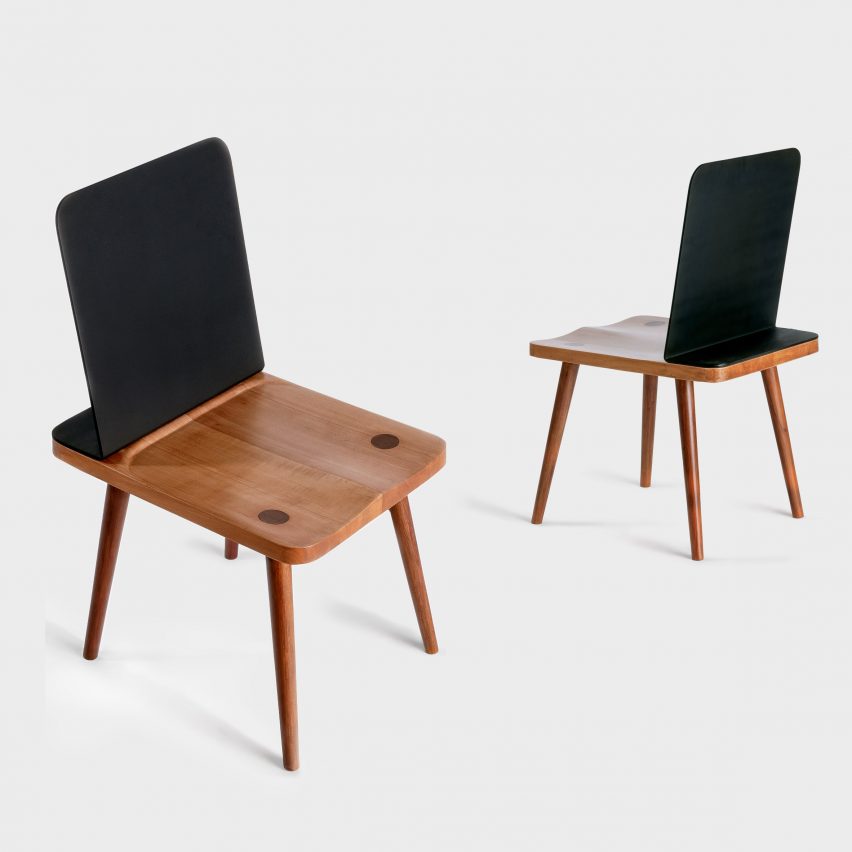
Mumbai design studio MuseLAB has prioritised sensual appeal over a singular design language for its debut 13-piece furniture collection.
The Hedonist range leans primarily on wood, glass and metal to form a series of tables and seats, as well as a singular mirror.
As the name suggests, each piece plays with complimenting and contrasting these materials in the name of achieving maximum aesthetic pleasure.
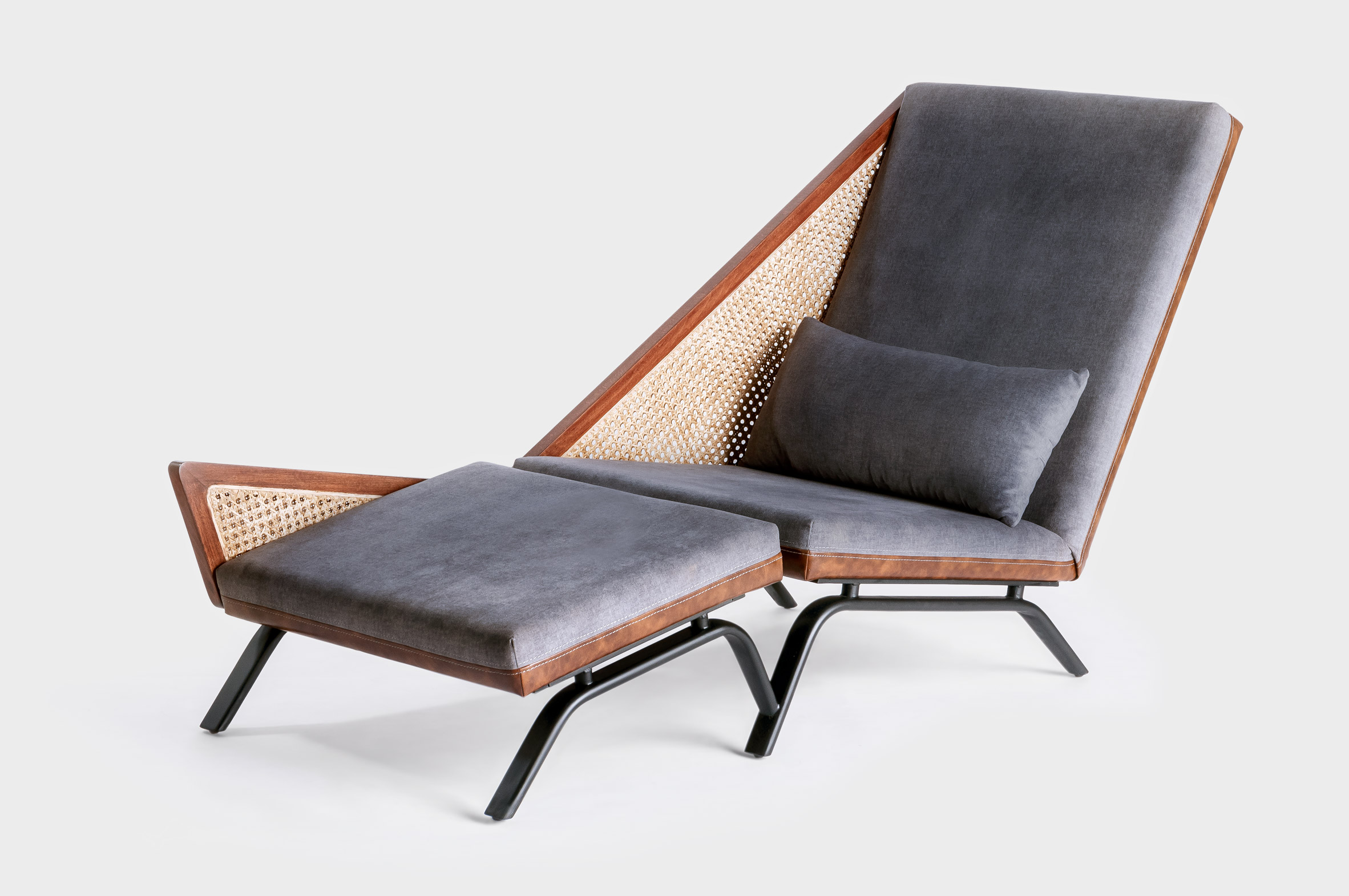
"The idea was to create the same sensory experience of opening a box of chocolates," co-founder Huzefa Rangwala told Dezeen.
"It was about indulging in furniture of high aesthetic value without restricting the appeal of the collection to any particular geographical context or design language. In that sense, the furniture is non-conformist and non-contextual."
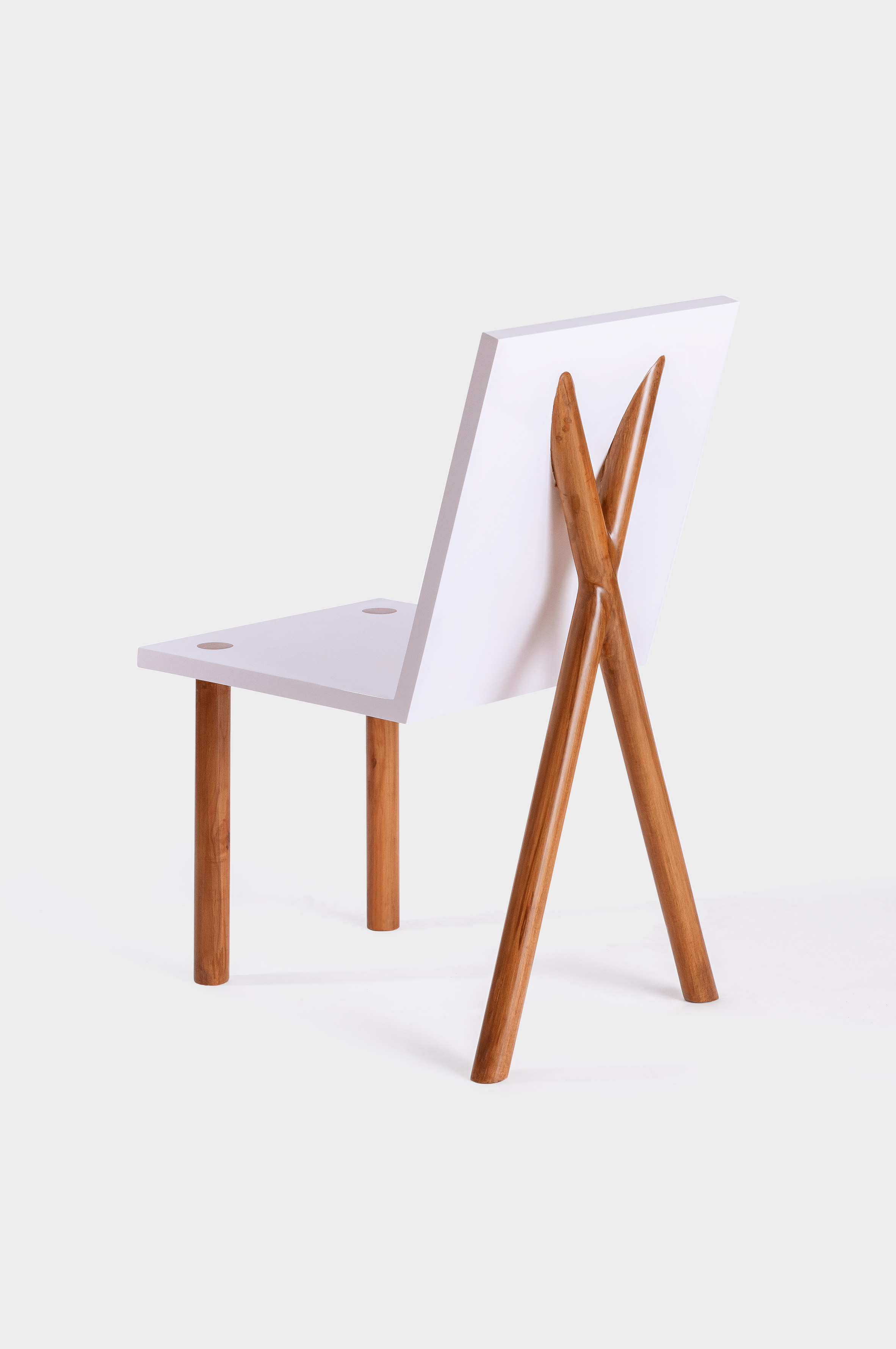
Instead, the focus is on how the same materials can be combined and recombined endlessly to very different, but ultimately satisfactory, effects.
Two of the collection's coffee tables, for example, both integrate glass into their design, but the material takes on very different roles in each.
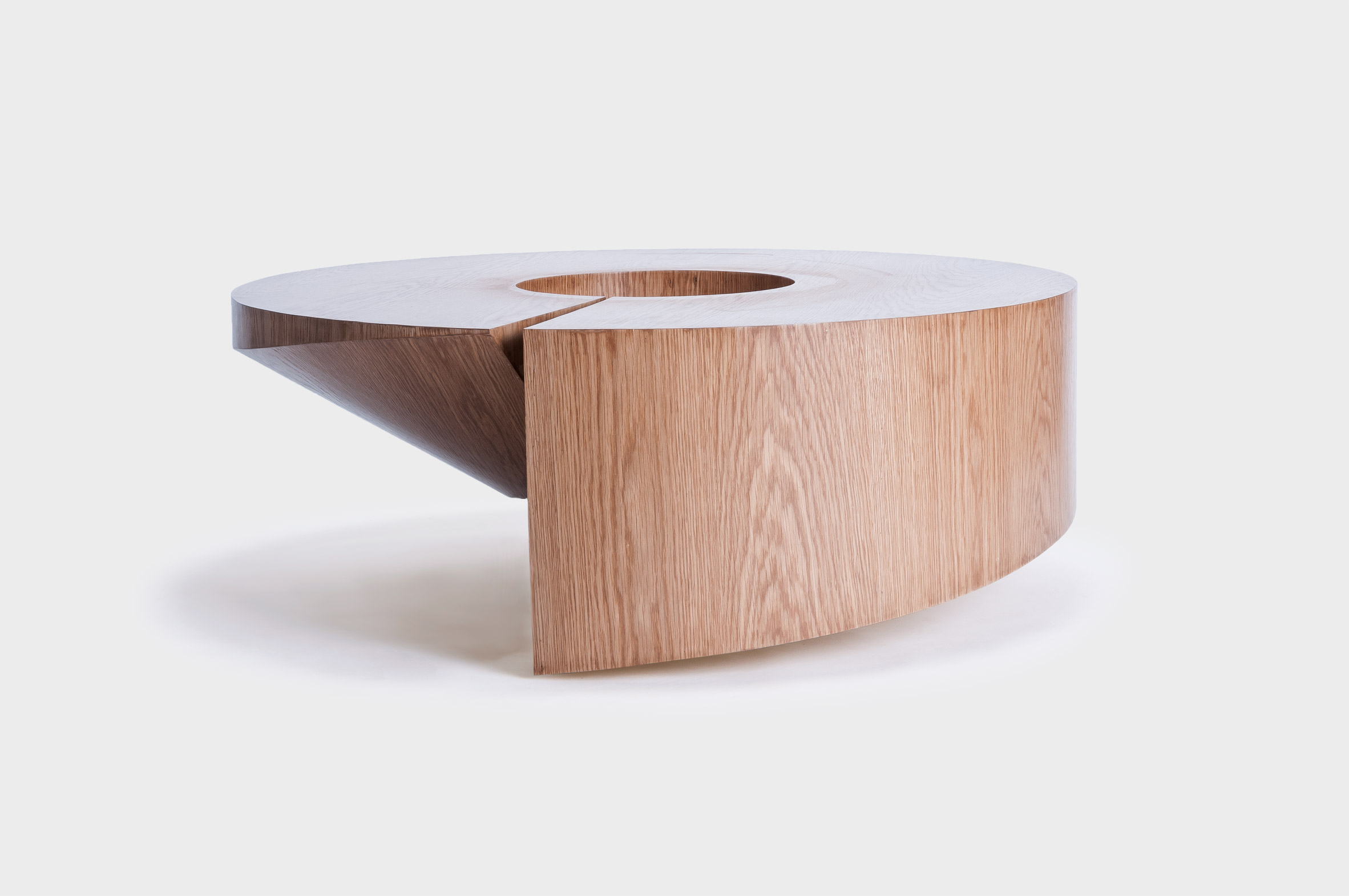
"The Bloom coffee table is anchored by the apparent weight of the wooden top, which floats above a glass cylinder," explained Jasem Pirani, the other half of MuseLAB.
"In contrast, the Disc coffee table looks light, but is actually weighty with its rising, metal base holding a glass top."
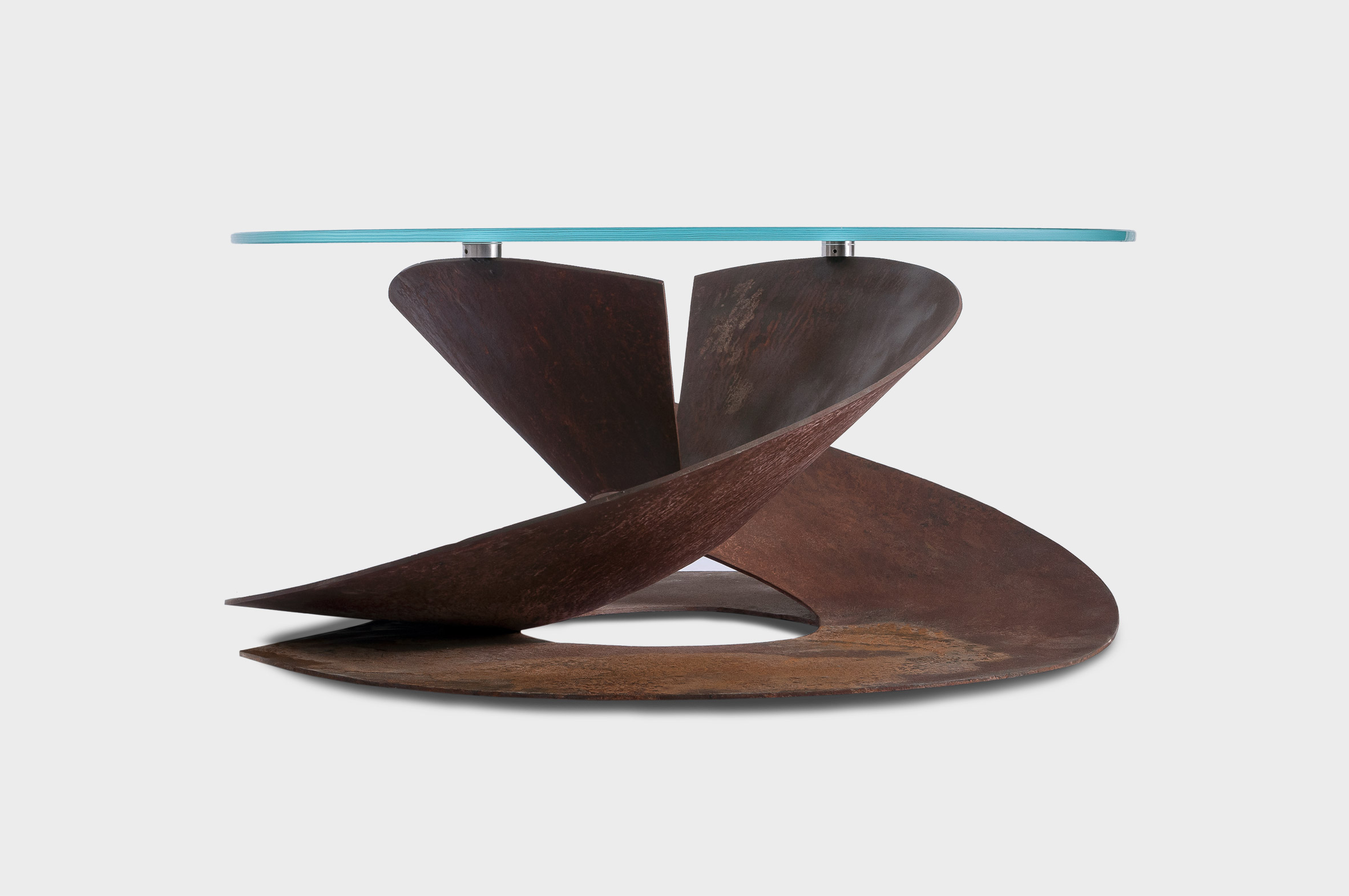
The textural interplay gives the furniture a sense of movement, as when Disc's glass top exposes the light and shadow of the double-helix underneath.
This base is hand-hammered into shape from five millimetre-thick metal sheets, before being left to rust naturally and finally coated with a sealer. Most pieces in the collection use materials in their natural state, sealed with a water-based PU finish.
Besides the cylindrical glass that props up the Bloom table, all fabrication is done in Mumbai.
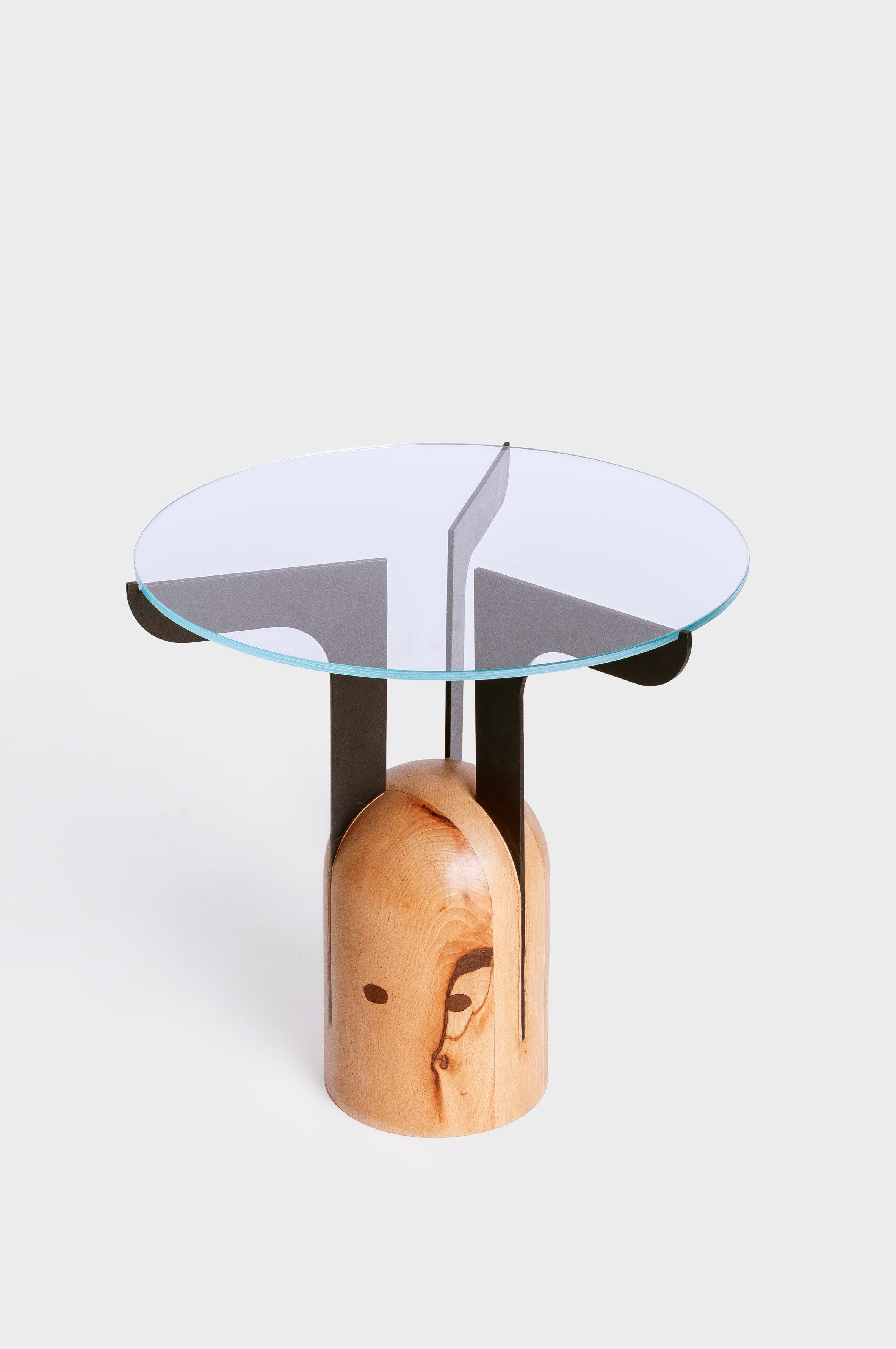
Another set of tables – called Bon Bon and Tarte – is tied together by its use of a glass top, leaving bare the masculine, black metal supports and the solid, beech wood base underneath.
The Biscuit chair on the other hand uses metal bent into an L-shape, to form the stark backrest of an otherwise midcentury-modern seat made of hand-carved beech wood.
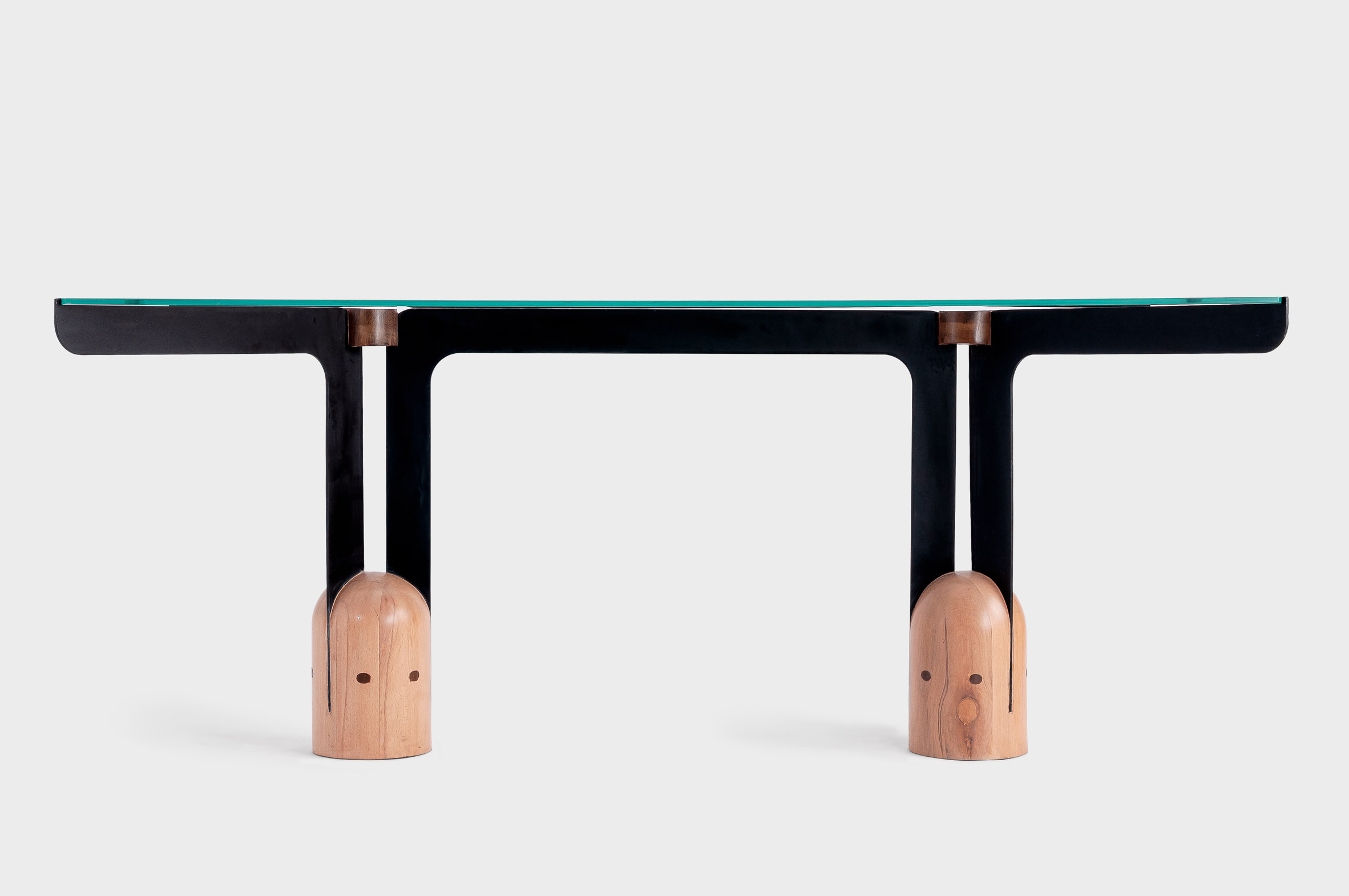
Other seating designs in the collection play with a luxurious, chocolate-brown faux-leather, using it alternately to upholster an entire armchair with matching bulbous pouffe, or simply to pad out the armrests of the backless Medallion chair.
In the Cane Crush lounger, meanwhile, the material is used solely as a backing, leaving an angular cane screen to take the spotlight.
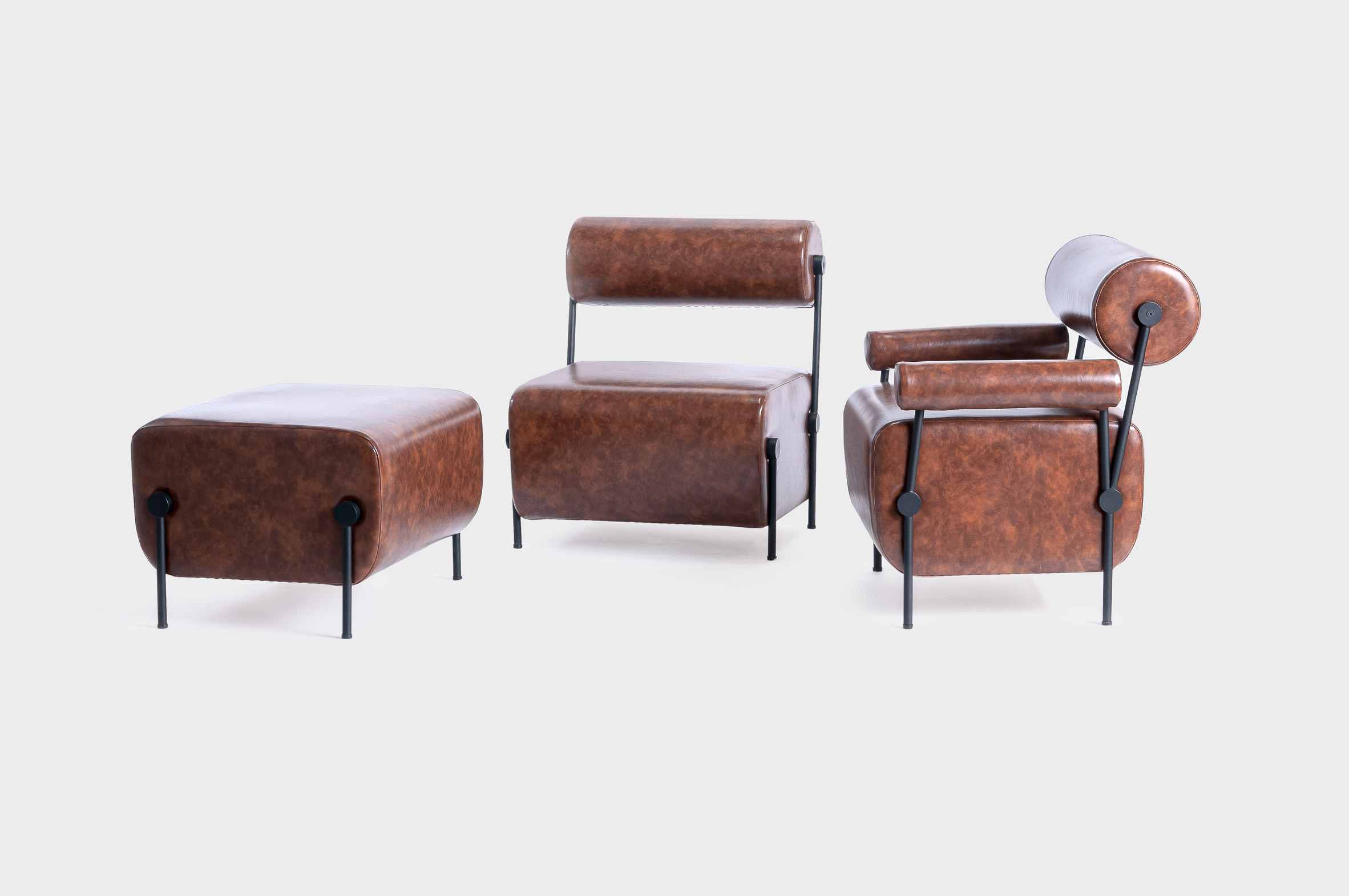
Since MuseLAB was founded by the duo in 2012, the studio has worked primarily on custom pieces.
"The need to do a unified furniture line arose from the simple desire to design and explore self-propelled projects or products that are not necessarily client-driven but are based on a brief designed by us," explained Rangwala.
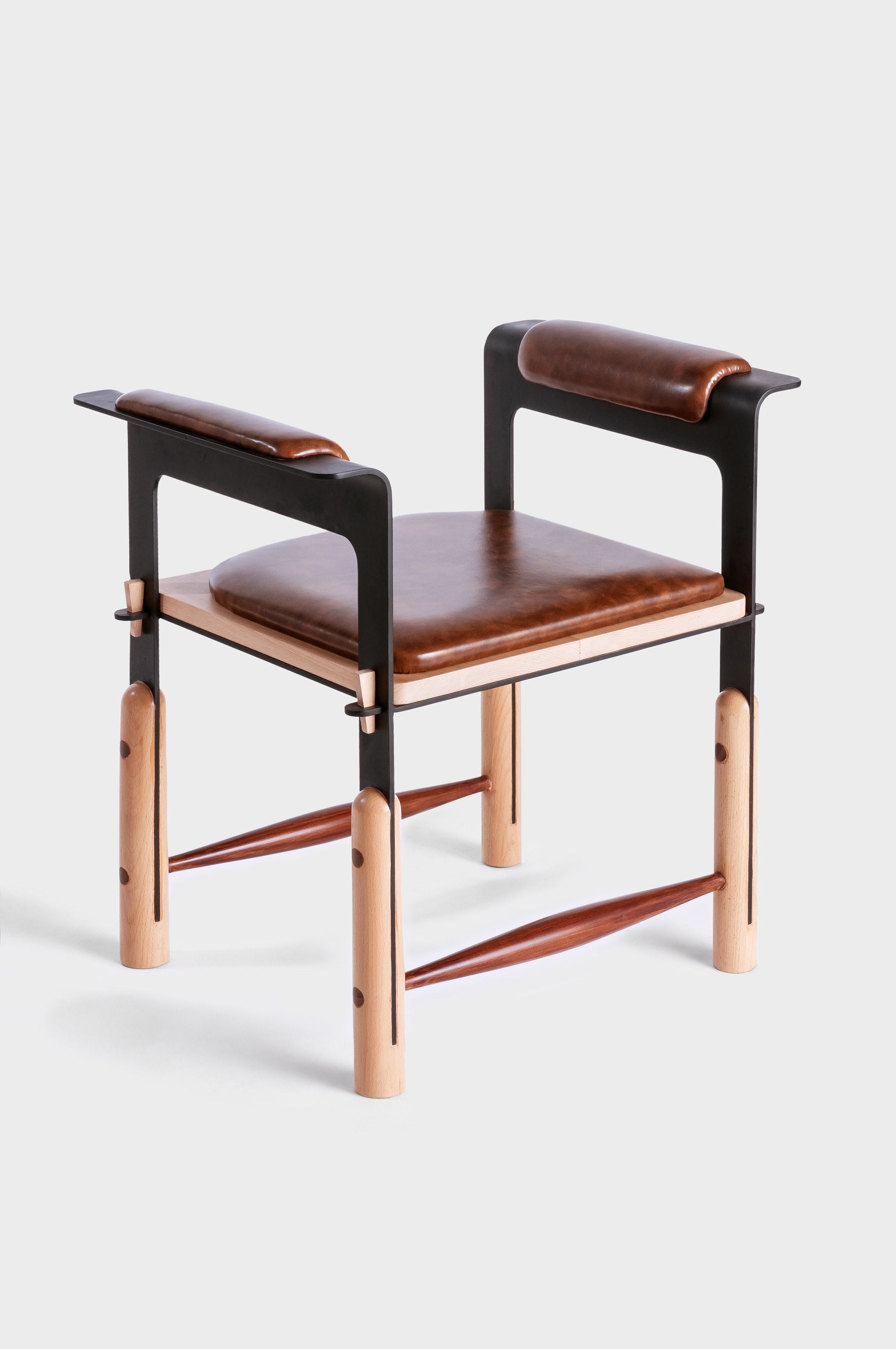
"We began the process of designing this line by setting out a few parameters for ourselves," added Pirani.
"It was important that the furniture is both aesthetically pleasing and functional, as well as accessible. We wanted it to be emotive and evocative – to sing a happy song."
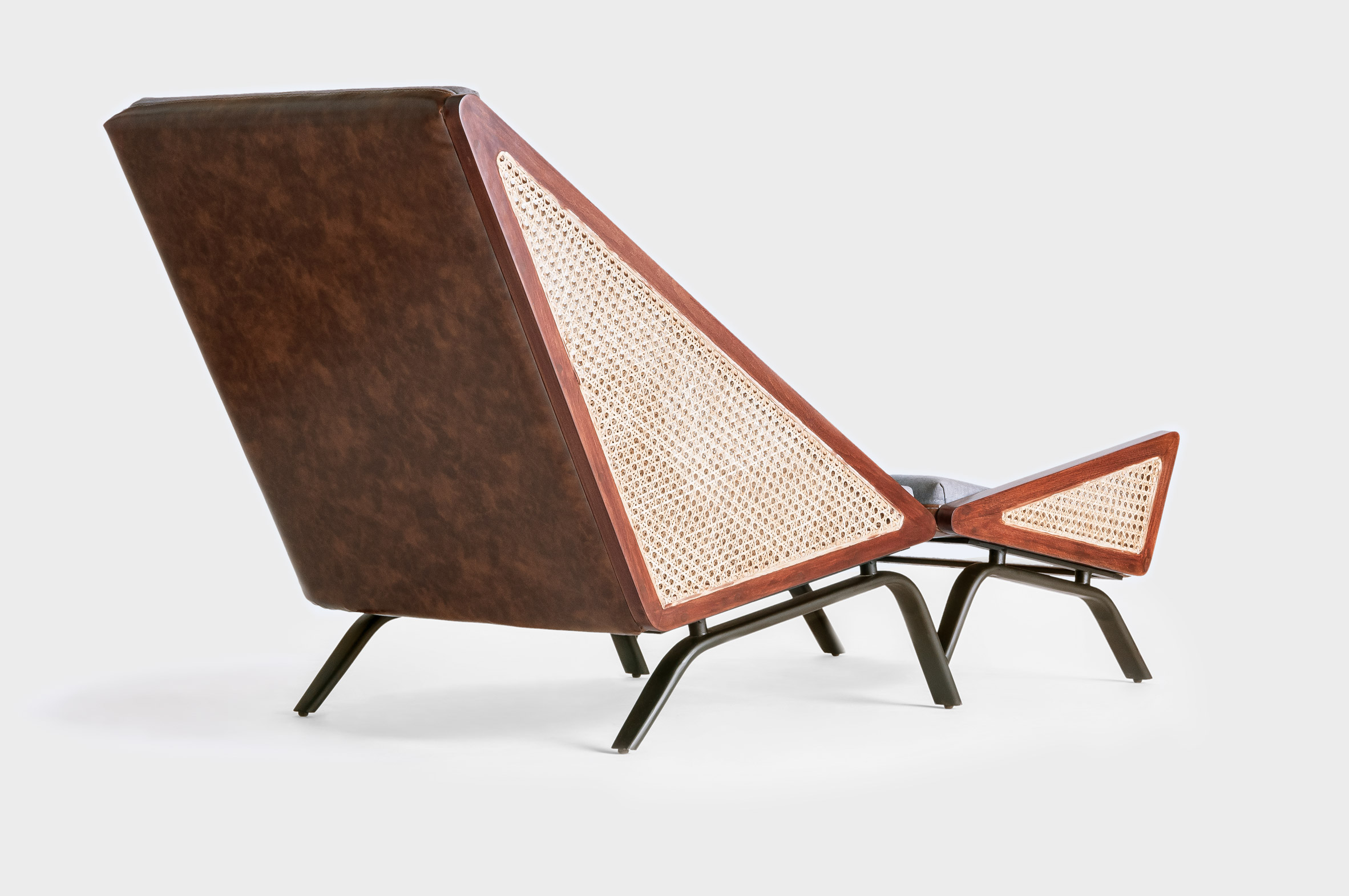
Elsewhere in furniture design, Maisondada recently revealed a seating series based on a David Bowie song while Valencia studio Masquespacio has created a chair that looks like an eye – complete with fringes for eyelashes.
The post MuseLAB's Hedonist collection is "non-conformist and non-contextual" appeared first on Dezeen.
from Dezeen https://ift.tt/2Oc5WGg

No comments:
Post a Comment